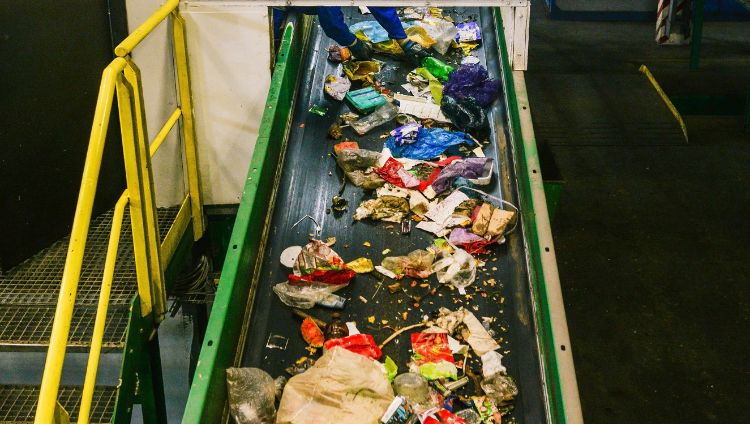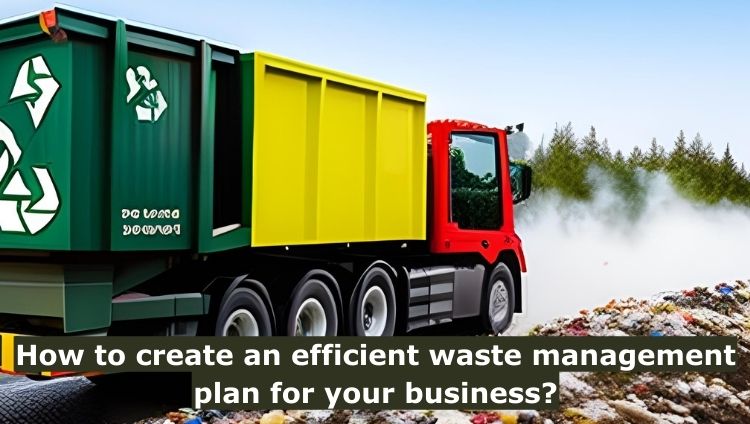It’s no surprise that many people are interested in joining the waste management industry. It seems like a great opportunity.
But before you start your business in this field, you’ll need a proper business plan.
When you first look at a business plan for a waste management company, it might seem really complicated, especially if you’re just an average person.
However, creating a efficient waste management business plan is essential if you want to start a business in this industry.
Don’t worry, we’re here to show you how to make a business plan for your own waste management business in an easy way.
Although these business plans might seem puzzling at the beginning, figuring out How to create an efficient waste management plan for your business or how to make them is as easy as understanding the different parts.
Industry Overview for Efficient Waste Management business plan
The waste management sector is essential for protecting our environment and promoting sustainable practices in business operations.
As awareness of environmental conservation grows alongside regulations and the need for cost-effectiveness, waste management has emerged as a key component of contemporary business strategy.
Learn more about how this affects sustainability in our article on How Waste Management Contributes to Climate Change.
Here’s an overview of this industry:

Industry Size and Importance
The global waste management sector boasts a staggering valuation of $890 billion, underscoring its profound importance within our economy.
Nevertheless, the concept of waste management has evolved beyond mere disposal. It now encompasses resource optimization, heightened recycling efforts, item reuse, and innovative approaches such as waste-to-energy or composting.
Environmental Impact
Inadequate waste management practices pose grave environmental risks, including pollution, land degradation due to excessive landfill use, and air quality deterioration.
Conversely, proficient waste management strategies mitigate these hazards, fostering cleaner and healthier air, soil, and water resources.
Related Post: How Waste Management affects the Environment?
Rules and Laws
Governments all around the world make rules about how we handle waste to keep the environment safe and people healthy.
Companies have to follow these rules, so it’s super important for them to have a good plan for managing waste. If they don’t, they might have to pay fines or deal with legal problems.
Related Post: Waste Management Dumpster Rules

Saving Money
When we manage waste better, we can actually save a lot of money. Reducing waste and recycling not only helps the environment, but it also cuts down on costs, like disposal fees and buying new materials. It’s a win-win!
The Three R’s: Reduce, Reuse, Recycle
Waste management plans often focus on the “Three R’s”:
Reduce: Minimizing waste generation through efficient processes.
Reuse: Finding ways to use materials multiple times.
Recycle: Sending waste materials to recycling facilities to create new products.
To dive deeper into how recycling plays a role, check out What Does Waste Management Do With Recycling?
Technological Advancements
Technology plays a significant role in waste management, with innovations in waste-to-energy, digital tracking systems, and waste sorting technologies improving efficiency.
Describe Your goal
Creating a mission statement is crucial because it serves as a dependable guide for your business, similar to how a detailed map helps you navigate a new city. It establishes the direction for your business vision and answers fundamental questions like:
- What key milestones are you aiming to reach?
- What broad objectives are you pursuing?
For example, your mission could focus on objectives like minimizing landfill waste or enhancing recycling practices.
Regardless of your specific focus, make sure your mission statement is concise and clear. It should also reflect your core values, which define the principles guiding your efforts towards achieving your goals.
These values might include exceptional customer service, environmental stewardship, or the pursuit of meaningful business accomplishments.

Research your Market
In the part of your plan where you talk about the market, you need to focus on your target customers and what you know about them. This includes who they are and what your competition is doing in the market. It’s also important to talk about what’s happening in the market right now.
Here’s why this matters:
Knowing your customers better helps you sell your services.
It shows how your business can fit into the market.
It gives the reader more information about your business.
It helps you figure out how much it might cost to get a share of the market.
You should also mention the big companies in the market and how they’re doing. This helps the reader see how your plan compares to the competition.
Doing research about the market is really important for your waste management company. It gets you ready for the challenges in the waste management industry. Plus, when you know what’s happening in the market, you might find new ways to make money.
Establish a Waste Management Team
Next, focus on forming a strong waste management team. Begin by choosing dependable members from your current staff who can lead this initiative.
If managing waste feels daunting, appoint a dedicated leader to oversee the entire process.
Having team members with varied expertise in different types of waste can be especially advantageous, as diverse skills can strengthen your efforts.
Creating a waste management team helps establish accountability. Without a designated handler, disorganization can occur. However, with a committed team, you can set clear deadlines and guidelines to ensure waste management is carried out efficiently and on time.

Frequently Asked Questions
How can we make waste management more efficient?
Efficiency in waste management can be achieved through a combination of strategies.
One key approach is to reduce waste generation at its source by optimizing processes and adopting eco-friendly practices.
Implementing recycling programs is another crucial step, encouraging the separation and proper disposal of recyclable materials, such as paper, plastic, glass, and metal.
Reuse of materials and items within an organization can also significantly reduce waste.
You can implement waste reduction strategies by exploring How to Reduce Waste in Your Daily Life.
What is a waste management plan?
A waste management plan is a structured document that outlines how a business or organization intends to handle its waste efficiently and responsibly.
Typically, such a plan encompasses a range of strategies, including waste reduction, recycling, reuse, proper disposal, and compliance with waste management regulations.
It may specify waste streams within the organization, detail procedures for waste collection and sorting, establish waste reduction goals, and promote sustainability practices.
What are 5 waste management strategies?
Five fundamental waste management strategies include waste reduction, recycling, reuse, composting, and waste-to-energy.
Waste reduction focuses on minimizing waste generation, often by simplifying processes and reducing excess materials.
Recycling involves separating and recycling materials like paper, plastic, glass, and metal to divert them from landfills.
Reuse encourages the repeated use of items before disposal, reducing the need for new materials.
Composting converts organic waste, such as food scraps and yard debris, into nutrient-rich compost.
Waste-to-energy strategies utilize waste as an energy source, like extracting biogas from organic waste or incinerating waste materials to produce energy.
If you’re interested in picking up some great tips on how to manage waste efficiently, visit our Blog.


